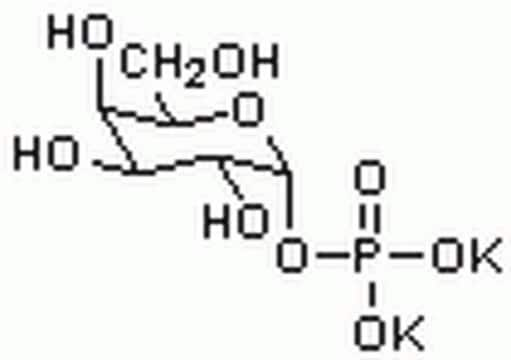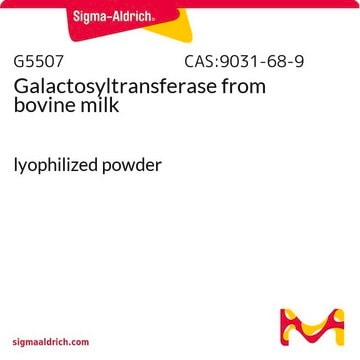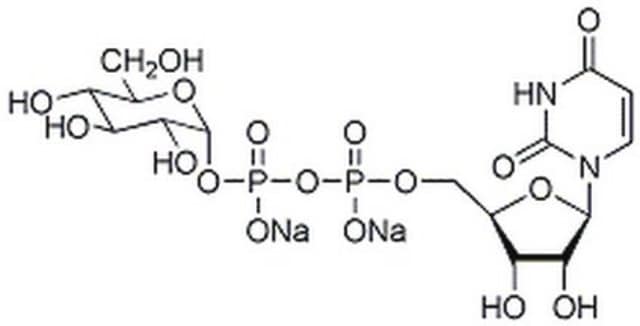G4256
Galactose-1-phosphate Uridyltransferase from galactose-adapted yeast
Type IV, lyophilized powder, 20-60 units/mg protein (modified Warburg-Christian)
Sinónimos:
GALT, UDP glucose:α-D-galactose-1-phosphate uridyltransferase
About This Item
Productos recomendados
type
Type IV
Quality Level
form
lyophilized powder
specific activity
20-60 units/mg protein (modified Warburg-Christian)
composition
Protein, 15-35%
foreign activity
6-phosphogluconate dehydrogenase ≤0.5%
UDP glucose pyrophosphorylase and galactokinase ≤0.2%
storage temp.
−20°C
¿Está buscando productos similares? Visita Guía de comparación de productos
General description
Galactose-1-phosphate uridyltransferase (GALT) is a galactose metabolizing enzyme that facilitates the simultaneous conversion of uridine diphosphoglucose (UDP-glucose) and galactose-1-phosphate (gal-1P) to uridine diphosphogalactose (UDP-galactose) and glucose-1-phosphate. Classic Galactosemia (CG) is an inherited metabolic condition caused by deficiency of GALT activity. GALT gene is mapped to human chromosome 9p13. Deficiency of GALT results in type 1 galactosemia.
Application
Unit Definition
Physical form
Storage Class
11 - Combustible Solids
wgk_germany
WGK 3
flash_point_f
Not applicable
flash_point_c
Not applicable
ppe
Eyeshields, Gloves, type N95 (US)
Certificados de análisis (COA)
Busque Certificados de análisis (COA) introduciendo el número de lote del producto. Los números de lote se encuentran en la etiqueta del producto después de las palabras «Lot» o «Batch»
¿Ya tiene este producto?
Encuentre la documentación para los productos que ha comprado recientemente en la Biblioteca de documentos.
Los clientes también vieron
Nuestro equipo de científicos tiene experiencia en todas las áreas de investigación: Ciencias de la vida, Ciencia de los materiales, Síntesis química, Cromatografía, Analítica y muchas otras.
Póngase en contacto con el Servicio técnico








